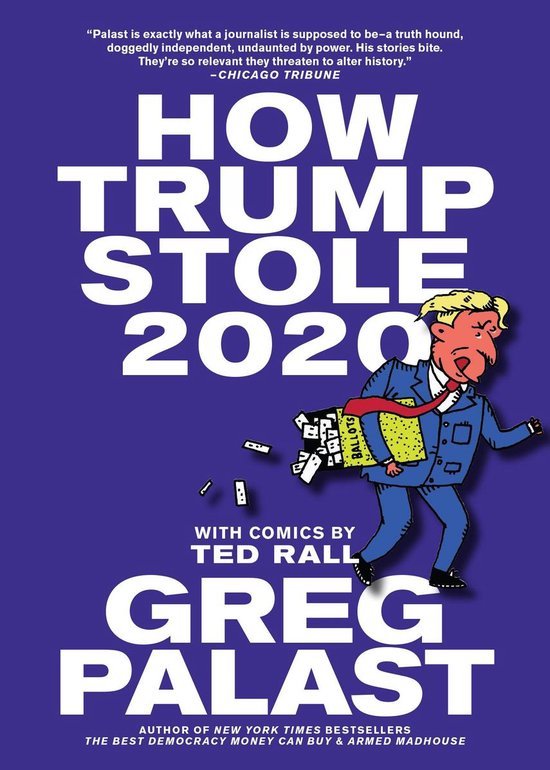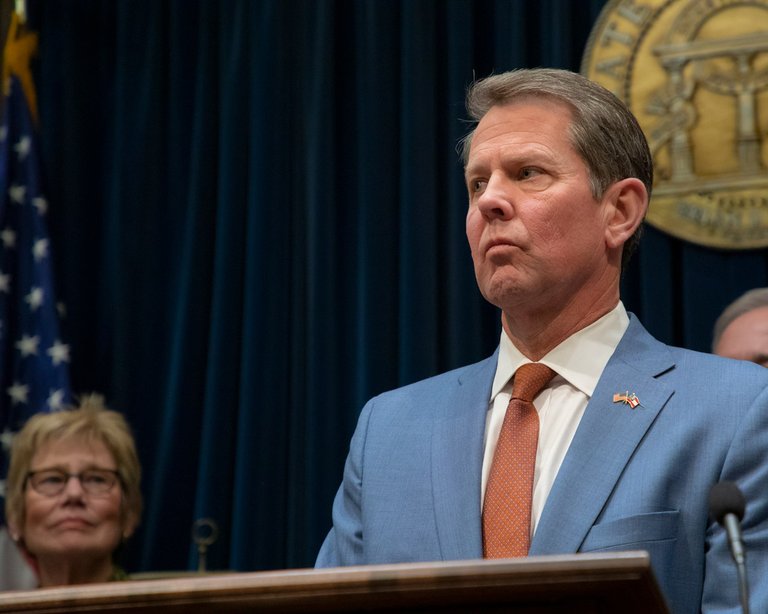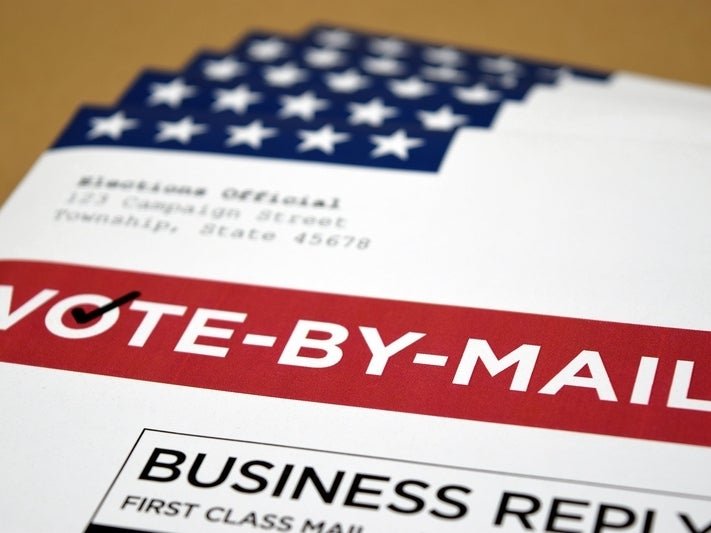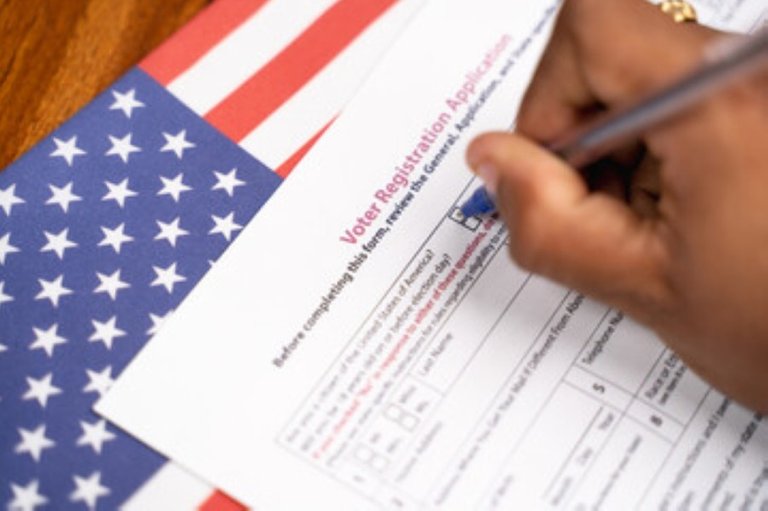
This post is mainly a summary of How Trump Stole 2020, the recent and very interesting book by American independent investigative journalist Greg Palast (1952).
Greg Palast?
Greg Palast is not just anybody. He has a long career in journalism behind him. His research work mainly focused on malpractices of large companies and he also worked for trade unions and consumer organizations. He was freelance for almost his entire career, including for the British public broadcaster BBC, The Observer and The Guardian. His style is very aggressive, which sometimes repels people, but one thing is certain: his figures and observations are correct. Always.
In 1998 he had already brought a lot of files to the surface. That year, he caused a political scandal in Great Britain when he was able to prove that Labour MPs were being paid by companies to take parliamentary initiatives for them. Prime Minister Tony Blair called him a "liar", to which he never returned, even after he was forced to admit the facts.
During the controversial first election of W. Bush, Palast was in Florida. He began to delve into an aspect of US politics that is barely covered by mainstream media: systemic election fraud.
Florida 1999
On November 2, 1999, Bush became junior president with fewer votes than his opponent, former vice president Al Gore. After a vaudeville that lasted several weeks, the Supreme Court decided that there would be no new counts, that rejected ballot papers would not be re-evaluated, and that all seats in the Florida Presidential Electoral College would go to Bush. Thus, Bush became president with a minority of votes but a very narrow majority of seats in the presidential electoral college.
Where the mainstream media quickly forgot the whole Bush fuss, Palast digged deeper into further research. His findings are irrefutable. The malpractices found in Florida are endemic in all US states, dating back decades and are still being used today.
Deliberately underdeveloped electoral system
An almost exact copy of the scenario of Florida 1999 already occurred in 1937. It was then that Lyndon Johnson managed to get elected to the federal House of Representatives for a Texas constituency with fewer votes than his opponent, using identical practices. Johnson became vice president of John Kennedy 23 years later and, to his own surprise, president after the assassination of Kennedy.
It's sad to note but the United States of America, the largest military and industrial power in the world, where television, airplanes, computers, cell phones, and the Internet were invented, still have a third-world country's electoral system (and in fact, that's an insult, as many third-world countries have developed high-performance systems in recent years).
Every state, every constituency has its own 'rules' that - needless to say - are aimed at discouraging people of color and poor people from registering as voters or failing to vote effectively. These rules are constantly changing, without people being informed of what is happening.
Voting Rights Act
The systemic exclusion of ethnic minorities and poor white Americans came to an end in 1965 with the Voting Rights Act of President Johnson, the man who himself once began his political career with fraud. He did not do so out of some deep conviction. He was concerned about the increasing protests of the civil rights movement and the associated massive refusal to perform military service in Vietnam. The military leadership told him that they would not be able to continue the war at the same time and control the unrest in their own country.
With his Voting Rights Act, millions of black Americans were given the right to vote. But it was of no avail. Since then, the states have gradually built in new hurdles to achieve the same result as before: political exclusion of the poorer part of the population.
What President Trump is now trying to do is simple: get re-elected, again with a minority of votes but with a majority of delegates in the presidential electoral college. For this, his allies have a wide menu of methods available, with the brutal savings in the US Postal Service (USPS) being only part of a bigger picture.
How this works is explained by Palast in his latest book How Trump Stole 2020. Anyone who already knows the facts of Florida 1999 will find almost nothing new in it. The same malpractices, but now even more thoroughly, with even more determination.
Meet Brian Kemp, your new governor
An example from many: Brian Kemp, today governor of the state of Georgia. Each state has a Secretary General, the highest 'civil servant', but elected and responsible for the administration of the state. This person is also responsible for keeping the electoral lists up to date. Citizens move, die or face a punishment that deprives them of their right to vote. He/she must prepare, monitor and officially confirm all elections.
In 2018, Republican politician Brian Kemp submits his candidacy for the elections of governor. He must stand against the Democratic opposing candidate Stacey Abrams. The polls promise an exciting race. That a black woman in a southern state like Georgia manages to convince half of the voters is historic.
Republican Kemp has a problem that is becoming increasingly acute for all Republicans throughout the US. The U.S. electoral system is a historical descendant of the British one-elected-per-district system (a single-member district or single-member constituency), which favors small, rural areas proportionately. In the U.S., it is the Republicans who benefit most. Although the Republicans regularly have majorities in the Federal Senate, this has not been based on a majority vote for thirty years.
Demography works against
The proportion of white voters, especially those in the vast countryside and small towns, is decreasing demographically. Moreover, more and more white voters are willing to vote for non-white politicians. They are not a majority but an ever-growing minority. In addition, the number of non-white voters is inevitably increasing, and they vote predominantly Democratically, partly out of conviction, partly out of aversion to the other party.

Governor Kemp
Brian Kemp has understood that well. The governor elections in Georgia are supervised by the incumbent Secretary of State and since 2010 his name is Brian Kemp. What would lead to an incompatibility in any normally functioning democracy is perfectly possible in the US. Kemp is responsible for the conduct of the elections in which he himself is a candidate.
Secretary-General Brian Kemp has not been idle during the two years before the governor elections. He has thoroughly checked the voter lists and deleted 'wrongful' voters. Simply preventing ethnic voters from registering as voters has not been possible since the Voting Rights Act. OK, so just cancel registrations then.
Kemp does it very thoroughly. About 6 million citizens have registered as voters in Georgia, 665,677 of them are deleted by him, 64,446 because they have died (in the USA, there is no general register of inhabitants, so deletion of the deceased is not automatic), 14,021 because they have been convicted of a crime involving loss of the right to vote (again, even this deletion is not automatic, the leading official can still decide whether or not to carry out the deletion or 'forget' it).
Registration, race, political preference, constituency
Thus, 534,510 voters remain removed from the lists. On average, about 200,000 citizens move from Georgia each year. So why so many deletions? To look at further processing, it is best to know that in the U.S. a citizen has to indicate his 'race' and his political preference when registering, unless she/he fills in NP (non-partisan), his social security number and the zip code of the constituency where she/he lives. It makes selective deletion of names all too easy, but it is the common reality throughout the US.
Citizens are notified that they have been deleted, with a postcard at their last known address. Kemp has arranged this postcard in such a way that it resembles an advertising brochure. White voters (as far as they are deleted) usually have a permanent address with their own mailbox for years. Black and poor Americans very often live in apartment blocks where the post boxes downstairs are not in best condition, and also move much more.
Stacey Abrams narrowly lost from Kemp, but had a suspicion what was going on. She ordered a thorough investigation of the canceled voters. Kemp used only one database to know the address of voters. However, Abrams consulted mail order companies such as Amazon. Approximately 340,000 voters who had been removed due to relocation and had not responded to the postcard were still living at the same address, in the same block, in the same neighborhood.
Those who were going to vote only found out about their cancellation at the polling station, too late to respond. On top of that, voters who had not voted in two consecutive elections (for anything, mayor, judge, sheriff, state parliament, federal parliament) were assumed by Kemp to have 'moved' and deleted. Again, since they know everything about the voter, the possibilities for selective removal are endless.

Kemp's 'victory' inspires others
The Republicans have studied the example of Kemp well. They asked the same company to 'check' their voter lists as well. As a result, since 2018, 432,000 voters have been eliminated in Ohio, North Carolina 576,534, Arizona 258,000, Wisconsin 99,000, etcetera. Palast asked the Federal Public Service Election Assistance Commission (EAC) for the global figures. In the US, 16,696,470 voters have been removed from the lists in recent years. In the state of Indiana, former governor Mike Pence removed 22.4! percent of all registered voters in 2016, one in five. Trump and Pence won in Indiana ...
However, it doesn't stop with deleted voters.In the US, you have been allowed to vote by post for years, something that has now been generalized for the first time in 2020 as the main way of voting. In 2016, 512,696 votes were cancelled by mail, 22 percent of all votes cast by mail. Reasons are very diverse and sometimes hallucinatory Orwellian. For example, certain Secretary of State decided to cancel votes if the signature on the accompanying form had not remained within the appropriate box.
For example voter William David Johnson was deleted because he had signed as William Johnson or Willy David Johnson. In some states, the postal vote must have been co-signed by another registered voter. In three states, the vote must be confirmed by a notarial deed. What these states have in common is that they inform citizens very briefly about these procedures. On top of this, there is the problem that at least 4% of all postal votes are simply lost. Voters who mark X in the box (instead of colouring it completely) are also randomly deleted.
Then there is the practice of placing very few polling stations in densely populated black and poor neighborhoods. In mainstream media, the long queues in black neighborhoods for Obama's two elections were translated as 'enthusiastic participation'. At the same time, white voters went to vote in the numerous electoral offices of their city districts without annoying waiting time.
In Wisconsin, the number of electoral offices in black neighborhoods was reduced from 180 to 5 in the federal primary elections. Also in Wisconsin, first-time voters must have a valid identity document. In the US, however, there is no identity card. Many blacks do not have a driver's license or one that has expired (driver's licenses are limited in time). Wisconsin was one of the states that gave Trump its majority in the presidential college in 2016.
Fraudsters James Brown and Michael Jackson
Since 2016, Republicans have been obsessed with the phenomenon of double voting. Voters would register en masse in two or more states. To prevent this, they started comparing voter lists between states. Needless to say, blacks and other ethnic minorities with the same or similar name are massively removed from all lists in which they appear. According to the Republicans, there were about 2.75 million voters.
For us Europeans, James Brown and Michael Jackson are the names of very famous singers. Same for politician Jesse Jackson. However, these are very common names. Equal surnames are much more common among blacks than among white Americans. White Americans have Swedish, British, French, Dutch, Italian, Russian, Slovak, Irish and so many other names.
Blacks mostly still have surnames of their former slave owner. More and more African-Americans are counteracting this by adopting African names, making them even more recognizable on the lists.
Research already shows that double voting is non-existent. Nevertheless, there is a good chance that William F. Whiting will be deleted, because there is a William Whiting registered in another state. Thousands of Latinos with the surname Rodriguez were deleted, as well as Muslims with similar names, Korean-Americans with the surname Kim, Chinese-Americans with the name Chong, and so on.
Absurd
Could it be even more absurd? In 2018, local activist Helen Ho had campaigned in Georgia among Korean-Americans to register. 4,000 Korean-Americans did so, but on the day of the elections they were not on the list. She then asked to see the registration forms. That was not possible, was the answer of Secretary of State because they were not kept. Ho then sent 4,000 copies of the registrations to Kemps services. The result was a lawsuit that dragged on for two years, because 'copying registrations is prohibited by law'. Her action committee won the case but was financially bankrupt.
In 2016, more than 1 million votes were cancelled across the U.S. for fraudulent voting, yet not a single voter was prosecuted for doing so. Why? A judicial investigation would show how many of these cancellations are unjustified. Judgments are 'precedents' in the U.S. legal system with far-reaching consequences. That's why.
Class war by other means
Greg Palast's decision is short: Voter suppression is simply class war by other means. America is one of the only nations on the planet besides China and Russia where party officials are responsible for elections.

However, the core of the problem is not all these malpractices. The core is that the U.S. is one of the few modern states in the world where you are not automatically on the electoral rolls as a citizen, without any need for personal registration (which has to be renewed every few years). It can be done. North Dakota is the only state in the US where voter registration does not exist. Palast on that point: "Registration is where most racism takes place - and that was always the intention of the system!"
Why don't the Democrats do something about it?
All this leads to a crucial question. Why are the Democrats letting this happen? Part of the explanation is that the Democratic establishment cannot recognize that such a problem exists in the US. In addition, there is the fact that at lower levels than the presidential election, Democrats apply the same tactics. A Democratic politician who gets elected with such practices would not benefit from abolishing those systems.
A minority of Democratic politicians see it differently, but that's the thing: they are a minority in their own ranks. A fair election process with correct voter lists opens the way for political alternatives outside the duopoly of the two power parties. More fundamentally, in the end it doesn't matter much to the top of the party, as long as the system of economic oligarchy at home and military hegemony abroad are not endangered, even Trump is acceptable to them, despite all the rhetoric.
The Republicans have more reasons to play the game meaner. After all, demographically they are doomed. They know that. Hence their zeal to 'purge' the voters' lists.
Former president Jimmy Carter (1977-1981) runs the Carter Center, which, among other things, monitors elections abroad. When asked why he does not monitor the elections in his own country with his organization, he answered laconically: "That is not possible, the U.S. has no elections that meet the minimum requirements of fairness and transparency".
Sorry, I don't want LA, Chicago and New York deciding the fate of the entire country.
Division of power is best.